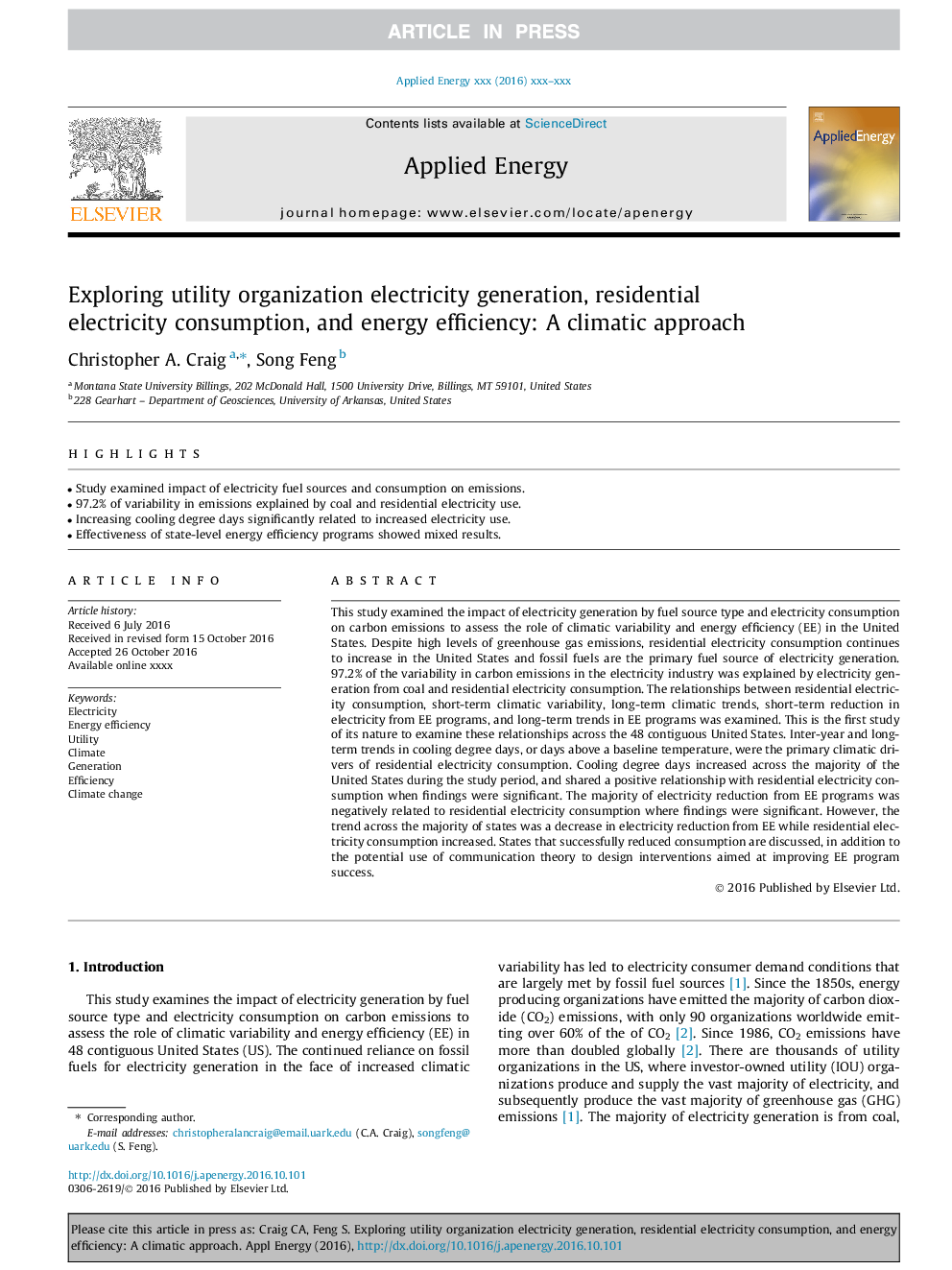| کد مقاله | کد نشریه | سال انتشار | مقاله انگلیسی | نسخه تمام متن |
|---|---|---|---|---|
| 4917014 | 1362738 | 2017 | 12 صفحه PDF | دانلود رایگان |
عنوان انگلیسی مقاله ISI
Exploring utility organization electricity generation, residential electricity consumption, and energy efficiency: A climatic approach
ترجمه فارسی عنوان
بررسی برق تولید برق، مصرف برق مسکونی و بهره وری انرژی: یک رویکرد اقلیمی
دانلود مقاله + سفارش ترجمه
دانلود مقاله ISI انگلیسی
رایگان برای ایرانیان
کلمات کلیدی
برق، بهره وری انرژی، سودمند آب و هوا، نسل، بهره وری، تغییر آب و هوا،
موضوعات مرتبط
مهندسی و علوم پایه
مهندسی انرژی
مهندسی انرژی و فناوری های برق
چکیده انگلیسی
This study examined the impact of electricity generation by fuel source type and electricity consumption on carbon emissions to assess the role of climatic variability and energy efficiency (EE) in the United States. Despite high levels of greenhouse gas emissions, residential electricity consumption continues to increase in the United States and fossil fuels are the primary fuel source of electricity generation. 97.2% of the variability in carbon emissions in the electricity industry was explained by electricity generation from coal and residential electricity consumption. The relationships between residential electricity consumption, short-term climatic variability, long-term climatic trends, short-term reduction in electricity from EE programs, and long-term trends in EE programs was examined. This is the first study of its nature to examine these relationships across the 48 contiguous United States. Inter-year and long-term trends in cooling degree days, or days above a baseline temperature, were the primary climatic drivers of residential electricity consumption. Cooling degree days increased across the majority of the United States during the study period, and shared a positive relationship with residential electricity consumption when findings were significant. The majority of electricity reduction from EE programs was negatively related to residential electricity consumption where findings were significant. However, the trend across the majority of states was a decrease in electricity reduction from EE while residential electricity consumption increased. States that successfully reduced consumption are discussed, in addition to the potential use of communication theory to design interventions aimed at improving EE program success.
ناشر
Database: Elsevier - ScienceDirect (ساینس دایرکت)
Journal: Applied Energy - Volume 185, Part 1, 1 January 2017, Pages 779-790
Journal: Applied Energy - Volume 185, Part 1, 1 January 2017, Pages 779-790
نویسندگان
Christopher A. Craig, Song Feng,
